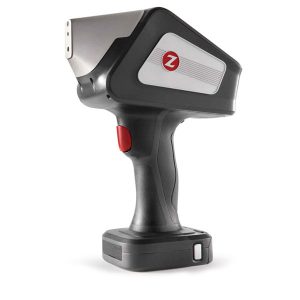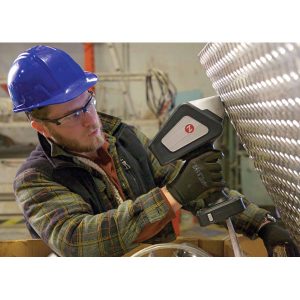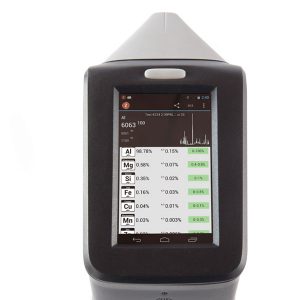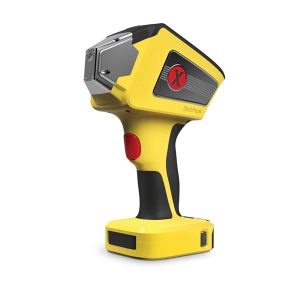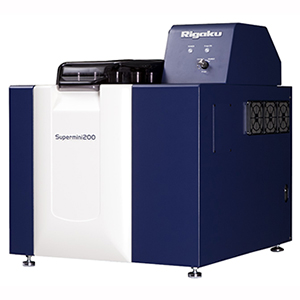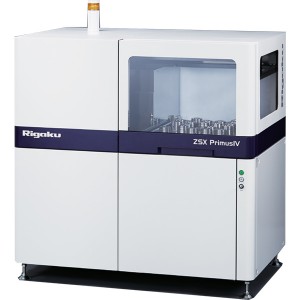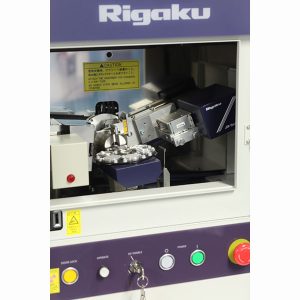Handheld LIBS Analyser – Z-Series from SciAps
The Z-Series handheld LIBS (Laser Induced Breakdown Spectroscopy) from SciAps is the most advanced laser based alloy analyser. The technology is similar to OES (Optical Emission Spectroscopy), but uses a laser rather than an electrical spark. LIBS offers low limits of detection (0.01-0.1%) when used in conjunction with an argon purge. This results in a 10-fold accuracy increase when compared to carrying out LIBS in air.
The Z-series LIBS incorporates a host of features to ensure you get the best results as quickly as possible. These include:
- Large colour touchscreen display
- Compact design thanks to resdesigned optics and electronics
- Ergonomic design
- More power efficient operation
- High resolution camera so you can analyse the exact spot you want
- Results in a few seconds
- Elemental range Hydrogen to Uranium
- No need for radiation training like handheld XRFs
The Key to Precise Chemistry Determinations
The keys to precise and reliable alloy identification are an argon purge and a high energy laser.
SciAps have gone further and employed 3 measures to ensure that you get the most accurate results possible. The Z-series is the only instrument on the market to use this technology.
- Argon purge
- Burst cleaning which eliminates the need for sample grinding and cleaning
- Beam rastering
Powerful Laser
Using optimal laser laser hardware and carefully design optics the Z-series is suited to alloy identification of all alloys, including aluminium alloys. With laser pulses of 5-6mJ per pulse at 50Hz, with each pulse delivered in a billionth of a second, the Z-series generated gigawatt power densities which result in good plasmas, even on the most refractory samples.
Applications of Handheld LIBS
LIBS has a limitless list of applications, making the Z-series handheld LIBS an extremely versatile instrument. Some applications that it is suited to include:
- Alloy chemistry and grade matching, PMI (Positive Materials Identification)
- Rocks, ores and soils
- Solids, powders and liquids
- Scrap sorting
- Plastics and coatings
- Laboratory testing
- Regulatory screening
- Research and education
Alloy Sorting
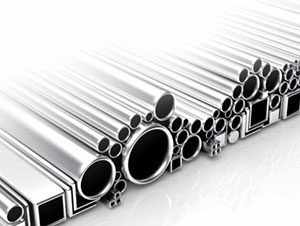 Sorting and identification of metal alloys is a key application for the Z-series that it excels at. It goes beyond the limits of handheld XRFs and even goes beyond the limits of other LIBS analysers. XRF’s and some LIBS are unable to measure elements such as lithium, beryllium, boron and selenium as they are simply outside their spectral ranges. This is not the case with the SciAps Z-series, allowing you to identify aluminium and nickel alloys (containing lithium and boron), beryllium copper alloys and lead-free copper alloys (containing selenium).
Sorting and identification of metal alloys is a key application for the Z-series that it excels at. It goes beyond the limits of handheld XRFs and even goes beyond the limits of other LIBS analysers. XRF’s and some LIBS are unable to measure elements such as lithium, beryllium, boron and selenium as they are simply outside their spectral ranges. This is not the case with the SciAps Z-series, allowing you to identify aluminium and nickel alloys (containing lithium and boron), beryllium copper alloys and lead-free copper alloys (containing selenium).
The Z-series can easily identify the following alloys and produces results in mere seconds:
- Stainless steels
- Copper alloys, bronzes and brasses
- Nickel alloys
- Titanium alloys
- Cobalt alloys
- Molybdenum alloys
- Tungsten alloys
Detector Protection
SciAps engineers know that detectors are expensive and can be easily broken when used out in the field. For this reason, they have built in a rugged quartz window which prevents accidental damage and reduces the risk of extended and costly downtime and replacement.
Android Operating System
The new Z-series LIBS (as well as their handheld XRF) from SciAps have been developed to run on the Android operating platform using a 5 high brightness touchscreen display that is easily viewable in all lighting conditions. This means that anyone who is familiar with operating a smartphone will instantly at home running these devices.
Furthermore, it means that the operating system will never be obsolete, and you will also have access to communications via wireless or Bluetooth so you can quickly and easily print or share data with your laptop or smartphone as well as being able to email data.
Ergonomically Designed Package
This is the next generation LIBS from SciAps. SciAps have taken feedback from users who asked for a smaller, lighter instrument. A new optics design has allows the engineers to significantly reduce the size and weight of the new Z-series handheld LIBS making it easier for operators to carry and around and handle.
They have also re-engineered the argon canister mounting to make changing canisters a much faster and simpler operation, adding to the positive user experience.
Videos
Introduction to the SciAps 2016 Z-Series Handheld LIBS
Analysis of Stainless Steels Including L-Grade and Upgraded User Interface
Determination of Carbon Content of Steels in Just Seconds
Measuring Carbon Content in L Series Stainless Steels Using the SciAps LIBS
Determination of Lithium Concentration in Brines Using LIBS
Quartz Blast Shield Protects the Detector
How LIBS Works and Its Applications
Application Notes
- Differentiating Steel Alloys Using Carbon Content – 316 vs 316L vs 316H
- Carbon Analysis in Low-Alloy and Carbon Steels with Handheld LIBS
- Carbon Equivalents Measurement with Handheld LIBS
- In-field Sulfur Analysis Using Handheld LIBS
- In-Field Analysis of Beryllium in Alloys and other Materials Using Hand Held Laser Induced Breakdown Spectroscopy [LIBS]
- Material Verification of Ionically Bonded Salts Using Handheld LIBS
- Advanced Aluminum Alloy Analysis with Handheld LIBS
- Lithium Analysis in Geological Materials Using Hand Held Laser Induced Breakdown Spectroscopy [LIBS]
- Discovering and Ending your 6063 and 1100 Mix-ups Using LIBS
- Handheld LIBS Analysis for Lithium in Aluminum Alloys
- Fast, Laser-based Cr Analysis for Flow Accelerated Corrosion (FAC) Applications
- In-Field Measurements of Major Elements and Base Metals with Handheld LIBS
- Initial Quantitative Measurements with Handheld LIBS
